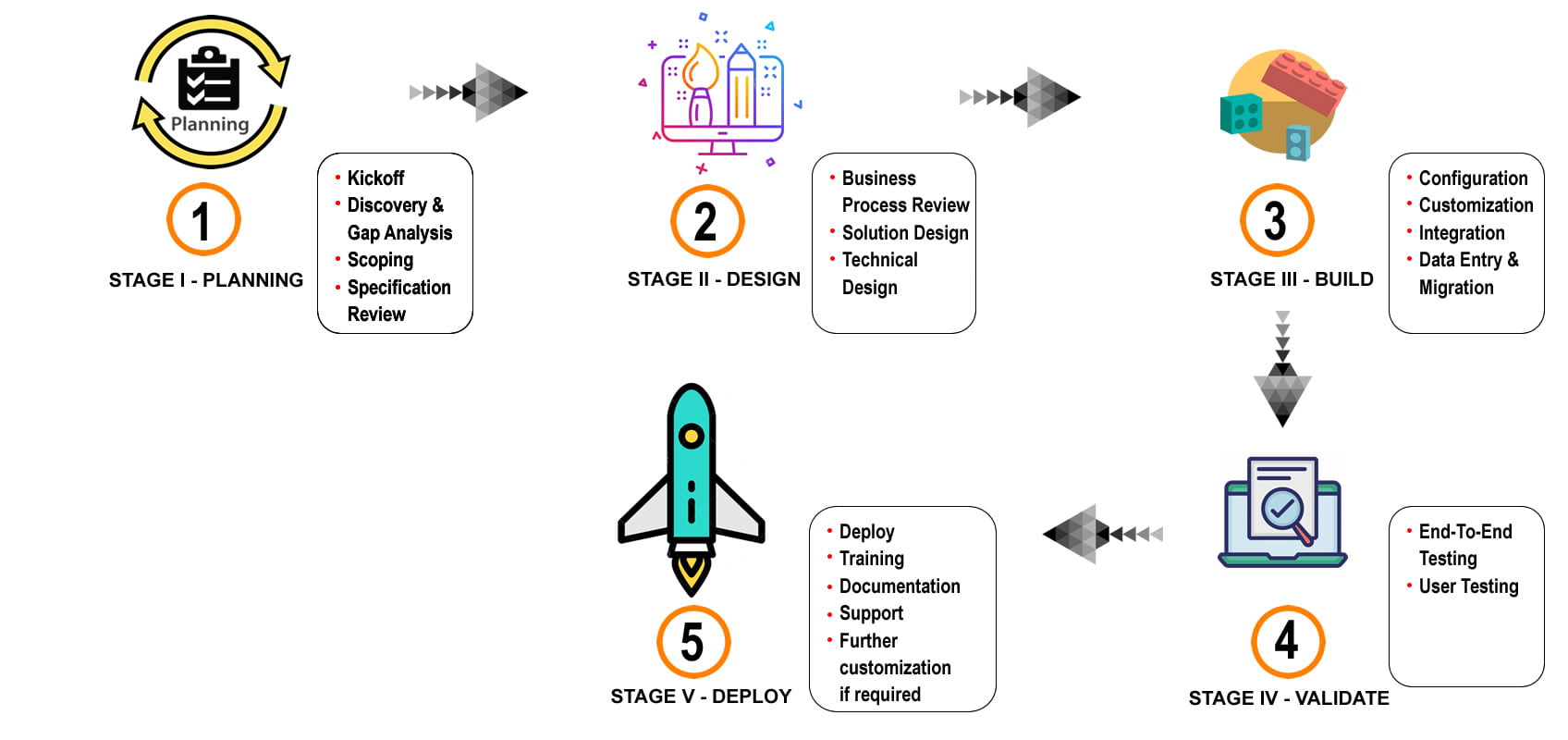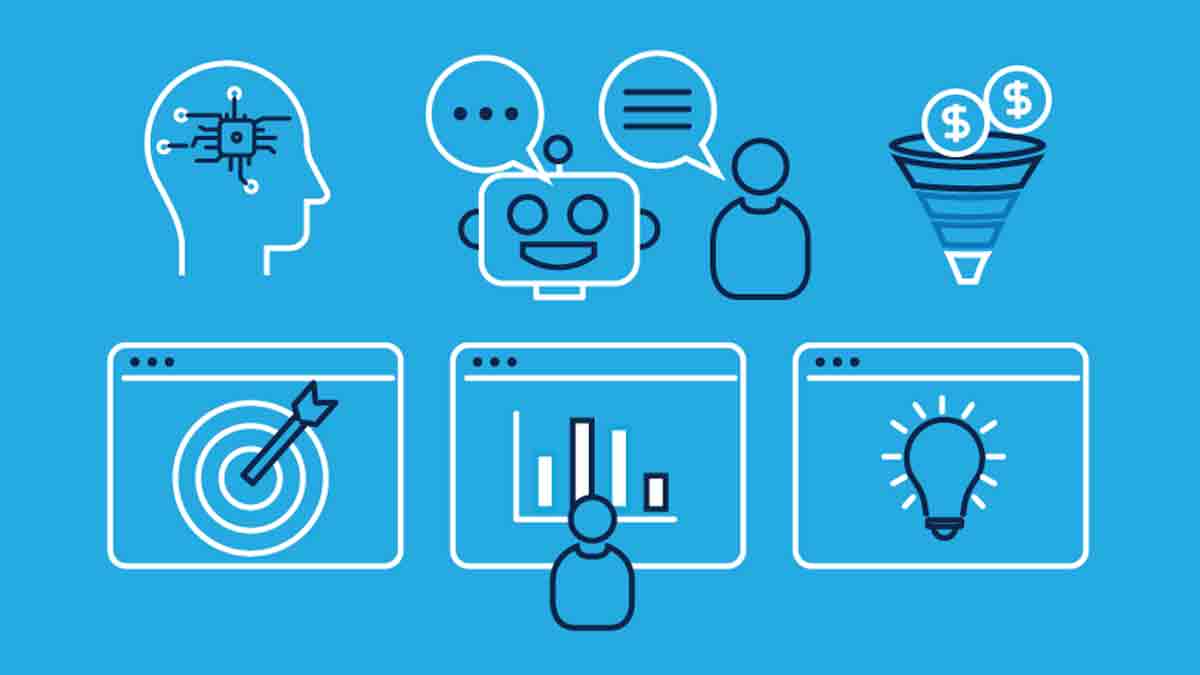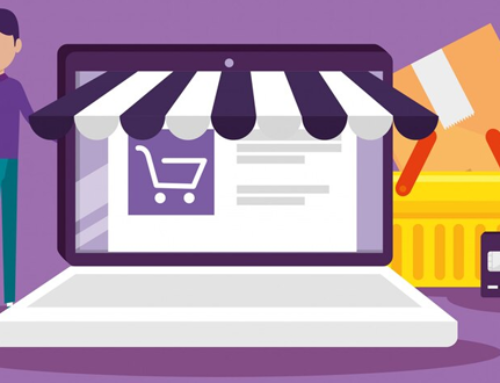Introduction to CRM Applications: Building Stronger Bonds with Your Customers
This section delves into the world of Customer Relationship Management (CRM), exploring its functionalities, benefits, and historical evolution.
What is CRM?
Think of CRM as your digital relationship manager, helping you nurture connections with customers throughout their entire journey with your business. It’s a suite of tools that centralizes customer data, streamlines interactions, and empowers you to make data-driven decisions to build lasting relationships.
Core Functionalities of CRM Applications:
- Capture and Organize Customer Data: From contact details and purchase history to preferences and interactions, CRM acts as a central hub for all customer information.
- Automate Repetitive Tasks: Streamline workflows by automating tasks like email marketing, lead nurturing, and reporting, freeing up valuable time for strategic endeavors.
- Gain Insights into Customer Behavior: Analyze customer data to understand their preferences, buying habits, and pain points, enabling you to tailor your approach and personalize experiences.
- Personalize Customer Interactions: Leverage customer data to personalize marketing messages, offers, and support interactions, fostering stronger relationships and loyalty.
- Improve Collaboration and Communication: Facilitate collaboration between sales, marketing, and customer service teams, ensuring a consistent and unified customer experience.
The Evolution of CRM Software in Business:
The concept of managing customer relationships has been around for decades, but the way it’s done has undergone a significant transformation. Here’s a brief journey through the evolution of CRM:
- Early CRM Systems (1980s-1990s): These systems were primarily used for contact management and basic sales automation, often requiring significant upfront investment and technical expertise.
- Collaborative CRM (late 1990s-2000s): As internet usage grew, CRM shifted towards collaboration and information sharing, facilitating teamwork and fostering a more unified customer experience.
- Social CRM (2000s-present): The rise of social media brought a new dimension, allowing businesses to engage with customers on their preferred platforms and gain valuable insights into their online behavior.
- Cloud-based CRM (2010s-present): The emergence of cloud computing revolutionized CRM, offering greater scalability, affordability, and accessibility, making it a viable option for businesses of all sizes.
- Mobile CRM (2010s-present): The increasing use of mobile devices led to the development of mobile CRM applications, empowering users to manage customer data and interact with customers on the go.

Significance of Implementing CRM Applications for Businesses:
In today’s competitive landscape, implementing a CRM application offers valuable benefits for organizations of all sizes:
- Improved Customer Relationships: Build deeper connections with your customer base by providing personalized experiences and addressing their needs effectively through a centralized platform.
- Enhanced Sales and Marketing Efforts: Streamline and optimize sales and marketing processes, allowing you to identify and nurture leads, track opportunities, and measure campaign effectiveness, ultimately leading to increased sales and improved marketing ROI.
- Increased Efficiency and Productivity: Automate repetitive tasks and improve data accessibility, freeing up valuable time and resources for employees to focus on more strategic activities.
- Data-driven Decision-Making: Gain valuable data and insights into customer behavior, allowing you to make informed decisions regarding marketing campaigns, product development, and customer service strategies.
- Improved Collaboration and Communication: Facilitate seamless teamwork across departments, ensuring everyone has access to the latest customer information and can contribute effectively to delivering a cohesive customer experience.
By implementing a CRM application, businesses can gain a significant competitive advantage by fostering customer loyalty, optimizing internal processes, and achieving sustainable growth. In the next section, we will delve deeper into the key features and functionalities offered by CRM applications, allowing you to understand their capabilities in greater detail.
Key Features and Functionality

CRM applications are not just a single tool; they are an ecosystem of functionalities tailored to address various aspects of customer interaction. This section explores the core features and functionalities within different CRM modules, real-time data management capabilities, integration potential, and the growing importance of mobile CRM.
Understanding CRM Modules: A Multi-faceted Approach
Most CRM solutions offer dedicated modules catering to specific business functions:
- Sales Module Functionalities:
- Lead management: Capture, qualify, and nurture leads to convert them into paying customers.
- Opportunity management: Track the sales pipeline, manage deals, and forecast revenue.
- Quote and proposal generation: Create and present compelling proposals to close deals efficiently.
- Sales task management: Assign and track sales tasks to ensure timely completion.
- Marketing Module Functionalities:
- Campaign management: Plan, launch, and track marketing campaigns across various channels.
- Email marketing: Design, personalize, and send targeted email campaigns to nurture leads and engage customers.
- Social media marketing: Manage social media presence, engage with followers, and gain valuable insights.
- Marketing automation: Automate repetitive marketing tasks like email sequences and lead nurturing campaigns.
- Customer Service Module Functionalities:
- Case management: Track and resolve customer inquiries and issues efficiently.
- Knowledge base management: Create and maintain a centralized repository of self-service resources for customers.
- Service level agreement (SLA) management: Define and track service level agreements to ensure customer satisfaction.
- Customer feedback and survey management: Collect and analyze customer feedback to improve service quality.
Real-time Data Management and Analytics: The Heart of CRM
CRM applications excel at capturing and cleansing customer data from various sources, providing a 360-degree view of each customer. This comprehensive data allows businesses to:
- Generate real-time reports and dashboards for insightful visualization of key performance indicators (KPIs) across sales, marketing, and customer service.
- Leverage predictive analytics to forecast sales opportunities, identify potential customer churn, and personalize customer experiences proactively.
Integration Capabilities with Other Business Tools: Expanding the Ecosystem
CRM solutions often integrate seamlessly with other business tools, allowing for centralized data management and streamlined workflows. Popular integrations include:
- Marketing automation platforms
- Email marketing tools
- Accounting software
- Project management tools
- E-commerce platforms
These integrations offer significant benefits such as:
- Eliminating data silos by ensuring consistent data across different platforms.
- Automating data transfer between applications, reducing manual work and improving accuracy.
- Enhancing collaboration across departments by providing a unified view of customer information.
Mobile Accessibility for On-the-Go Management: Staying Connected, Anytime, Anywhere
With the increasing use of mobile devices, mobile CRM has become a crucial aspect of customer relationship management. Key features of mobile CRM include:
- Access to customer data and contact information
- Ability to manage leads, opportunities, and customer support cases
- Real-time activity updates and notifications
- Communication tools like phone calls and emails
The Importance of Mobile CRM for Businesses:
Mobile CRM empowers businesses to:
- Improve responsiveness to customer inquiries and requests by providing real-time access to information.
- Increase productivity by allowing sales and service teams to work remotely and manage customer interactions on the go.
- Enhance collaboration by facilitating communication and information sharing between team members in different locations.
By leveraging the diverse functionalities and capabilities of CRM applications, businesses can cultivate strong customer relationships, optimize internal processes, and gain valuable insights to drive sustainable growth. In the next section, we will delve into the process of choosing the right CRM solution for your specific business needs.
Choosing the Right CRM Fit: Optimizing Your Customer Journey

Selecting the ideal CRM application is crucial for maximizing its benefits and aligning it with your unique business goals. This section equips you with the knowledge and insights to navigate the selection process effectively.
Evaluating Business Needs and Objectives: Charting the Course
Before embarking on your CRM selection journey, it’s essential to have a clear understanding of your specific business needs and objectives. Here are some key questions to consider:
- Business Size and Complexity: Are you a small startup, a medium-sized business, or a large enterprise? The size and complexity of your organization will significantly impact the features and functionalities you require in a CRM solution.
- Core Business Functions: Which departments within your company will primarily utilize the CRM? Understanding the needs of sales, marketing, and customer service teams will help you identify relevant modules and features.
- Budgetary Constraints: Determine your budget allocation for a CRM solution, considering one-time license fees, subscription models, and potential implementation costs.
- Data Security and Regulations: Does your industry have specific data security requirements or compliance regulations (e.g., GDPR, CCPA) that the CRM solution must adhere to?
- Integration Needs: Will you need to integrate the CRM with other existing business tools? If so, ensure compatibility and seamless data flow between platforms.
By thoroughly evaluating your business needs, you can establish a clear roadmap for selecting the most suitable CRM solution.
Comparison of Popular CRM Platforms: Navigating the Landscape
The CRM market offers a diverse range of solutions, each with its own strengths and weaknesses. Here’s a brief overview of some leading CRM platforms to provide a starting point for your research:
- Salesforce: A leading enterprise-grade CRM platform offering comprehensive features and robust customization options. Ideal for larger businesses with complex needs but can be costly for smaller companies.
- HubSpot CRM: A user-friendly and feature-rich platform particularly well-suited for smaller businesses and startups. Offers free and tiered paid plans with an emphasis on marketing automation and lead generation.
- Zoho CRM: An affordable and scalable CRM solution suitable for businesses of all sizes. Offers a wide range of features, including sales, marketing, and customer service functionalities, at a competitive price point.
- Freshworks CRM: Known for its user-friendly interface and strong mobile capabilities. Ideal for businesses seeking a simple and intuitive CRM solution for managing customer interactions across various channels.
- Microsoft Dynamics 365: Part of the Microsoft suite, integrates seamlessly with other Microsoft products and offers strong customization options. Ideal for businesses already invested in the Microsoft ecosystem.
Important Considerations When Comparing Platforms:
While exploring different platforms, consider the following factors for a comprehensive evaluation:
- Feature set and functionalities: Align the CRM’s features with your specific business needs and ensure it addresses your core requirements effectively.
- Pricing structure and scalability: Choose a solution that fits your budget and can scale as your business grows.
- Ease of use and user interface: Opt for a platform with a user-friendly interface that encourages user adoption and minimizes training requirements.
- Security and data privacy: Ensure the CRM solution adheres to industry standards and regulations regarding data security and privacy.
- Customer support and training: Evaluate the level of customer support and training options offered by the CRM vendor.
Scalability and Customization Options: Adapting to Your Growth
As your business evolves and expands, your CRM needs will inevitably change. It’s crucial to consider the scalability and customization options offered by different platforms:
- Scalability: Choose a solution that can grow with your business, allowing you to add users, features, and storage capacity as needed. Cloud-based solutions typically offer greater scalability compared to on-premise software.
- Customization: Depending on your specific requirements, you might need a platform that allows for customization of workflows, reports, and user interfaces. However, extensive customization might require additional development resources or expertise.
User-Friendly Interface for Enhanced Adoption: A Smooth Onboarding Experience
Even the most feature-rich CRM solution will be ineffective if your team struggles to use it. Opt for a platform with a user-friendly interface that is:
- Intuitive and easy to navigate: Minimize the learning curve for users by ensuring the interface is clear, logical, and consistent.
- Visually appealing and modern: A visually appealing interface can enhance user experience and encourage adoption.
- Mobile-friendly: Consider if your team needs mobile access to customer data and choose a platform with a responsive interface for smartphones and tablets.
Investing in user training and providing ongoing support can also significantly enhance CRM adoption within your organization.
By carefully evaluating your business needs, comparing leading CRM platforms, and prioritizing scalability, customization, and user-friendliness, you can select a CRM solution that empowers you to cultivate strong customer relationships, optimize internal processes, and gain valuable insights to drive sustainable growth. In the next section, we will delve into the process of implementing your chosen CRM solution seamlessly and effectively. This will involve exploring best practices for data migration, user training, and ongoing optimization to ensure your CRM delivers its full potential.
Implementing CRM for Improved Customer Engagement

Once you’ve chosen the right CRM solution, it’s time to unleash its potential for improved customer engagement. This section explores how CRM empowers you to elevate your communication strategies, personalize marketing efforts, streamline customer service, and ultimately build lasting relationships.
Enhancing Customer Communication Strategies:
Centralized communication through CRM offers several benefits:
- Consolidated communication history: View all interactions with a customer across various channels (phone, email, social media) in one place, ensuring a comprehensive understanding of their needs and preferences.
- Improved response times: Respond to inquiries and requests promptly with access to customer information readily available.
- Omnichannel communication: Engage with customers on their preferred channels, fostering a more accessible and personalized experience.
Utilizing CRM for Personalized Marketing Campaigns:
CRM data is your secret weapon for personalized marketing campaigns. By leveraging customer data, you can:
- Segment your customer base: Create targeted marketing campaigns based on demographics, interests, and purchase history, increasing campaign effectiveness.
- Deliver personalized recommendations: Recommend relevant products and services based on individual customer behavior and preferences.
- Nurture leads and build customer loyalty: Implement automated email sequences and personalized content to nurture leads and foster stronger relationships.
Streamlining Customer Service Processes:
A CRM system can significantly improve customer service efficiency:
- Faster issue resolution: Track customer support cases efficiently, assign them to relevant agents, and access relevant customer data to resolve inquiries swiftly.
- Improved knowledge base management: Create a centralized knowledge base with self-service resources allowing customers to find answers independently.
- Enhanced service quality: Analyze customer feedback and service metrics to identify areas for improvement and enhance overall service quality.
Building Long-lasting Customer Relationships:
By implementing effective CRM strategies, you can cultivate lasting customer relationships:
- Proactive customer engagement: Anticipate customer needs based on historical data and proactively address potential issues, fostering a sense of care and attention.
- Increased customer satisfaction: Resolve customer issues efficiently, deliver personalized experiences, and demonstrate genuine interest in their needs, leading to higher satisfaction and loyalty.
- Improved customer lifetime value: Foster long-term customer relationships that encourage repeat business and advocacy, ultimately increasing customer lifetime value.
By leveraging the capabilities of your CRM solution, you can elevate customer engagement, build stronger connections, and drive sustainable growth for your business. In the following section, we’ll explore the importance of data security and privacy within the context of CRM usage.
Safeguarding Customer Data: Security and Privacy in CRM Applications

Customer data entrusted to your CRM system requires robust security measures. This section highlights the importance of data security and privacy, compliance with regulations, and the role-based access control (RBAC) system in safeguarding valuable customer information.
Importance of Data Security in CRM Applications:
Data breaches can have devastating consequences for businesses, including:
- Financial losses: Regulatory fines, legal fees, and remediation costs can significantly impact your bottom line.
- Reputational damage: Loss of customer trust and brand reputation can be difficult to recover from.
- Customer churn: Data breaches can lead to a loss of customer confidence and potential business.
Compliance with Data Protection Regulations:
Several data protection regulations, like GDPR (General Data Protection Regulation) and CCPA (California Consumer Privacy Act), mandate specific data handling practices. Businesses must comply with these regulations to avoid legal repercussions and protect customer data privacy.
Role-based Access Controls (RBAC) for Secure Information Handling:
CRM systems often utilize RBAC to ensure secure information handling. RBAC restricts access to customer data based on individual user roles and responsibilities. This ensures that only authorized personnel have access to the information they need to perform their duties, minimizing the risk of unauthorized access and data misuse.
By prioritizing data security and adhering to data protection regulations, businesses can build trust with their customers and mitigate potential risks associated with data breaches.
The Future of CRM: Empowering Businesses with AI and Automation

CRM is constantly evolving, embracing cutting-edge technologies like Artificial Intelligence (AI) and automation to further empower businesses in their customer relationship management endeavors. This section explores how these advancements are shaping the future of CRM.
Leveraging AI for Predictive Analytics in CRM:
AI-powered predictive analytics empowers businesses with valuable insights, including:
- Predicting customer churn: Identify customers at risk of churning and implement proactive measures to retain them, minimizing customer loss.
- Forecasting sales opportunities: Predict the likelihood of closing deals, allowing for better sales pipeline management and resource allocation.
- Personalizing customer experiences: Generate personalized recommendations and targeted marketing campaigns based on individual customer behavior and preferences.
Implementing Automation for Routine Tasks:
CRM systems can automate various repetitive tasks, freeing up valuable time and resources for employees to focus on strategic initiatives. Examples of automatable tasks include:
- Lead scoring and qualification: Automatically score leads based on defined criteria, prioritizing those most likely to convert.
- Email marketing campaigns: Schedule and deliver personalized email campaigns based on customer segments and preferences.
- Data entry and updates: Automate data entry and updates from various sources, minimizing manual work and ensuring data accuracy.
Advantages of Task Automation:
Automating repetitive tasks offers several benefits:
- Increased efficiency and productivity: Employees can dedicate more time to strategic activities and high-value tasks.
- Reduced human error: Automating tasks minimizes the risk of errors associated with manual data entry and repetitive processes.
- Improved data consistency: Automated processes ensure data consistency across different systems and departments.
Enhancing Customer Insights through AI-driven Data Analysis:
AI algorithms can analyze vast amounts of customer data, uncovering deeper customer understanding. This can lead to:
- Identifying hidden patterns and trends: Gain insights into customer behavior and preferences that might be overlooked through traditional analysis methods.
- Developing more effective customer segmentation: Create precise customer segments based on behavioral and attitudinal data, enabling highly targeted marketing and service strategies.
- Providing personalized recommendations: Leverage AI insights to recommend relevant products, services, and offers to individual customers, enhancing customer satisfaction and loyalty.
By embracing AI and automation, businesses can unlock the full potential of CRM, gain valuable customer insights, optimize processes, and achieve significant competitive advantages.
Case Studies: Real-World Success Stories
This section showcases two real-world case studies demonstrating the tangible benefits businesses can achieve through successful CRM implementation.
Case Study 1: E-commerce Startup Boosts Sales and Customer Retention
Challenge: A young e-commerce startup struggled with managing customer data, personalizing marketing campaigns, and providing efficient customer service, hindering sales growth and customer retention.
Solution: The startup implemented a user-friendly CRM solution with features like lead scoring, marketing automation, and a centralized customer service portal.
Results:
- 25% increase in qualified leads: Automated lead scoring helped identify and prioritize promising leads, resulting in efficient sales efforts.
- 10% boost in conversion rate: Personalized email marketing campaigns based on customer data yielded higher engagement and conversion rates.
- Improved customer satisfaction: Centralized customer service management and faster resolution times led to increased customer satisfaction and reduced churn.
- Lesson Learned: Implementing a CRM solution tailored to specific business needs can significantly improve lead generation, conversion rates, and customer retention.
Case Study 2: Manufacturing Company Streamlines Operations and Enhances Customer Service
Challenge: A large manufacturing company faced challenges with managing customer orders, tracking service requests, and maintaining clear communication with customers, impacting operational efficiency and customer satisfaction.
Solution: The company implemented a comprehensive CRM solution with functionalities like order management, case management, and a self-service customer portal.
Outcomes:
- 30% reduction in order processing time: Streamlined order management through CRM improved efficiency and reduced errors.
- 20% decrease in customer service inquiries: A self-service portal empowered customers to find answers independently, minimizing service requests.
- Enhanced customer loyalty: Proactive communication and faster issue resolution fostered stronger customer relationships.
- Key Takeaway: Utilizing a CRM system can optimize internal processes, empower customers with self-service options, and ultimately lead to enhanced customer service and loyalty.
These case studies illustrate the transformative potential of CRM solutions in addressing diverse business challenges and achieving tangible results. By strategically implementing and leveraging the capabilities of CRM, businesses can cultivate stronger customer relationships, optimize internal operations, and drive sustainable growth.
Glimpsing the Future: Emerging Trends in CRM
The landscape of CRM applications is constantly evolving, embracing innovative technologies to empower businesses in their customer relationship management endeavors. This section explores three key trends shaping the future of CRM:
- AI Advancements in CRM: Revolutionizing Customer Interactions
- Enhanced personalization: AI will drive hyper-personalization across all customer touchpoints, from marketing campaigns and product recommendations to customer service interactions.
- Advanced chatbots and virtual assistants: AI-powered chatbots and virtual assistants will offer 24/7 customer support, providing answers to inquiries and resolving simple issues, freeing up human agents for more complex tasks.
- Predictive lead scoring and customer churn prediction: AI algorithms will analyze vast amounts of data to predict customer behavior with greater accuracy, enabling businesses to prioritize high-potential leads and proactively address potential churn.
- Integration with Emerging Technologies: Expanding the CRM Ecosystem
- Internet of Things (IoT) integration: CRM systems will integrate with IoT devices to collect real-time customer data and gain insights into their behavior and preferences, allowing for even more personalized experiences.
- Blockchain integration: Blockchain technology has the potential to enhance data security and transparency within the CRM ecosystem, fostering trust and improving customer confidence.
- The Shift towards Cloud-based CRM Solutions: Increased Accessibility and Scalability
- Increased adoption of cloud-based CRM: The adoption of cloud-based CRM solutions is expected to continue growing due to their accessibility, affordability, and scalability compared to on-premise alternatives.
- Focus on mobile CRM: With the increasing use of mobile devices, mobile CRM will play a critical role, enabling real-time access to customer information and on-the-go interaction management.
- Emergence of industry-specific CRM solutions: Tailored to specific industry needs and regulations, industry-specific CRM solutions will offer customized features and functionalities, catering to the unique requirements of different sectors.
In conclusion, CRM applications have become indispensable tools for businesses of all sizes, fostering stronger customer relationships, optimizing internal processes, and ultimately driving sustainable growth. As technology continues to evolve, CRM solutions will become even more sophisticated, offering businesses exciting new possibilities to connect with their customers on a deeper level and achieve remarkable success.
Conclusion
CRM is crucial for businesses aiming for sustainable growth and customer-centric success. It enables organizations to build strong relationships with customers by leveraging data insights to customize offerings and deliver personalized experiences. CRM goes beyond sales and marketing, impacting all aspects of a business, from customer support to decision-making. By centralizing customer information, automating processes, and improving communication, CRM becomes an essential tool in navigating the complexities of the modern business landscape. Ultimately, CRM is more than just software—it’s a philosophy that prioritizes customers, driving long-term success and customer satisfaction.








